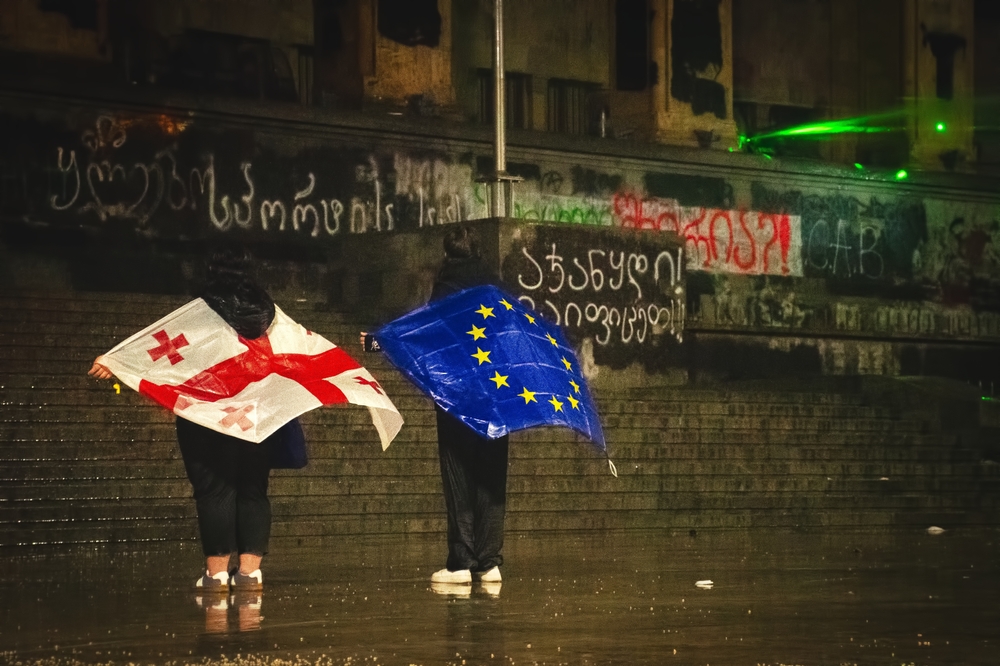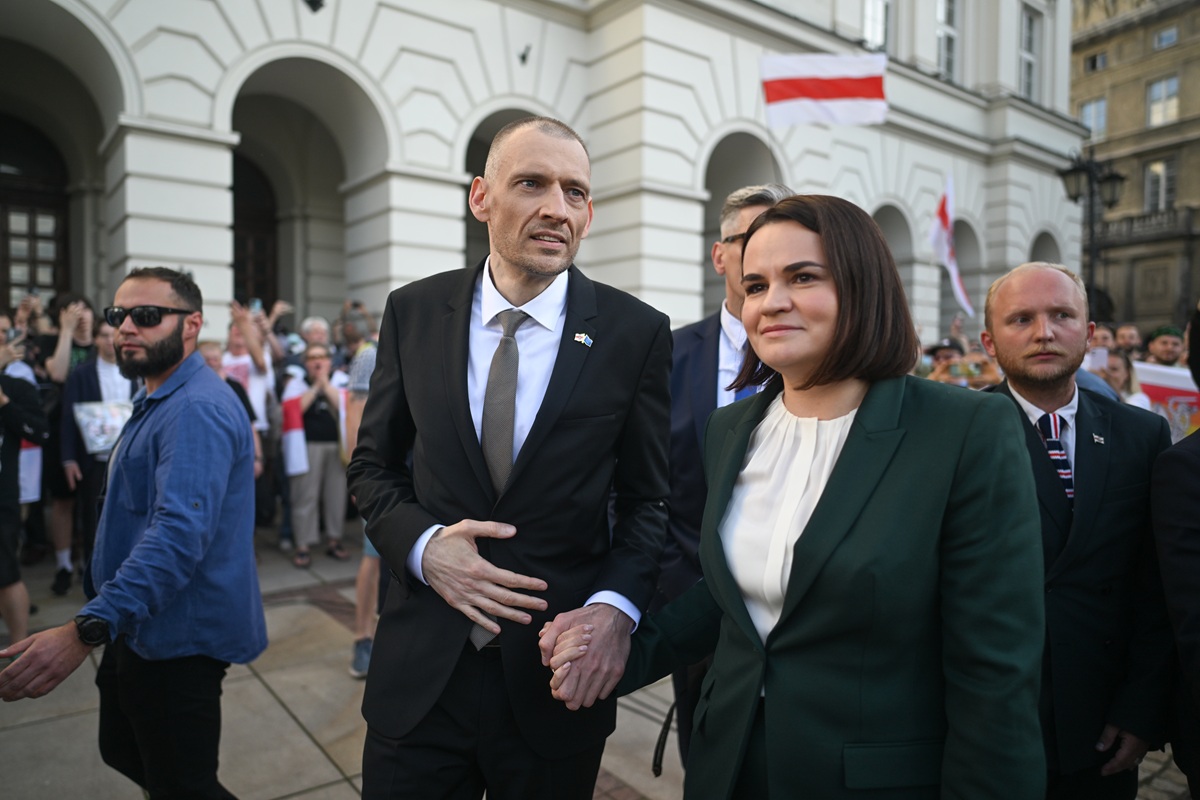DEAR READER,
It is conference season in Central and Eastern Europe. European and world leaders flocked to Warsaw, Sarajevo, and Helsinki to hash out how to handle the rising mess in the region. Coming back from the Warsaw Security Forum, one thing was clear: Ukraine dominated every agenda and chat. At the Sarajevo Security Conference, the discussions went beyond the region of the Western Balkans and, in a similar way, discussed the growing threat Europe faces from the East. Many NATO officials there confirmed what we hear elsewhere — if we are not increasing our defence capabilities now, then it is already too late.
Meanwhile, two big things broke over the weekend. Czechia just elected Andrej Babiš and his ANO party. Our contributor Jakub Ferencik unpacks what his comeback could mean in this week’s expert opinion. Georgia’s local elections, partly boycotted by some of the opposition parties, ended not with change, but with deeper confusion. The boycotting groups even declared a so-called “peaceful coup”. More on that in our top stories. One thing is clear though — civil society is shrinking fast (the Georgian Institute of Politics just stopped its operations), and opposition TV stations might be next. If you want to keep an eye on Georgia, there are many independent initiatives popping up, such as Today.Dghes, so go ahead and check out their page.
Also, to wrap up: we are partnering with The Riga Conference 2025, the biggest security forum in the Nordic-Baltic region! Tune in to their livestreams starting October 8, or come say hi in person at our panel (co-hosted with the Heinrich Böll Foundation Warsaw Office).
Enjoy reading this week’s “brief”!
— Giorgi Beroshvili, Editor
TOP STORIES OF THE WEEK
🇷🇺 / 🇺🇦 Russia launched massive overnight assault on Ukraine, killing five. The Lviv region suffered its heaviest bombardment since the war began, with four members of one family killed in the village of Lapaivka and another person dead in Zaporizhzhia. President Volodymyr Zelenskyy said more than 50 missiles and nearly 500 drones were fired, mostly targeting civilian and energy infrastructure as winter nears. Poland scrambled NATO fighter jets to secure its airspace. Large parts of western Ukraine were left without power. The strikes come just days after a US official said Washington supports Kyiv’s right to strike inside Russia.
🇬🇪 Georgia’s ruling party declared a sweeping victory in Saturday’s local elections. But the win came against a backdrop of street clashes, opposition arrests, and accusations of fraud. Prime Minister Irakli Kobakhidze hailed the “impressive” results, with preliminary figures showing the ruling party taking more than 80% of the vote nationwide after much of the opposition boycotted. The tense vote triggered a night of violent unrest in Tbilisi as protesters marched toward the presidential palace, clashing with riot police who deployed tear gas and water cannons. Authorities later arrested several rally organizers, accusing them of attempting to “overthrow the constitutional order”. The chaotic scenes mark a dramatic low point for Georgia’s fragile democracy and deepen its growing isolation from the EU.
🇱🇹 Lithuania halted air traffic after smugglers’ balloons drift in from Belarus. Flights were suspended for several hours at Vilnius Airport on Sunday after officials detected dozens of helium balloons carrying contraband cigarettes drifting from Belarus. Lithuania’s National Crisis Management Centre said 25 balloons entered its airspace, including two over the airport, prompting the cancellation or diversion of 30 flights and affecting nearly 6,000 passengers. Seven balloons were recovered, carrying around 12,000 cigarette packs.
🇲🇩 Moldova joined the Single Euro Payments Area (SEPA). The move means Moldovans can now send and receive euro transfers under the same conditions as EU residents — fast and nearly fee-free — with average costs dropping from as high as €200 to just a few euros. The National Bank of Moldova says exporters will save around €20 million annually in reduced transaction costs, with eight Moldovan banks already integrated into the system. On the contrary…
🇭🇺 Orban rejects euro adoption. Hungarian Prime Minister said on Monday that Hungary should not adopt the euro, arguing that the European Union is “disintegrating” and that Budapest must not “tie its fate closer” to the bloc. Speaking to the outlet EconomX, Orban contrasted his stance with that of opposition rival Peter Magyar, who is campaigning to restore frozen EU funds and push Hungary toward eurozone entry ahead of 2026 elections.
🇧🇬 Deadly floods hit Bulgaria. Torrential rain has battered Bulgaria’s Black Sea coast, leaving two dead and prompting states of emergency in Nesebar and Tsarevo. Roads, homes, and schools in the Burgas region were submerged. Vehicles were swept into the sea, transport links shut down, and parts of Sunny Beach and Sveti Vlas, still full of end-season tourists, were left underwater. Videos shared online even showed a tornado forming near Tsarevo. Interior Minister Daniel Mitov visited the area Friday as authorities scrambled to coordinate evacuations and relief. Many Bulgarians criticised the government’s slow response.
EXPERT OPINION
Will Babiš lean east or west?

Billionaire businessman Andrej Babiš, the Czech Republic’s seventh richest man, has emerged victorious in the Czech Republic's parliamentary elections, though his populist ANO party did not secure an overall majority. ANO garnered just under 35% of the vote, which amounts to 80 seats in the 200-seat lower house, an increase from 72 seats in the previous election, according to early results.
Babiš, who served as prime minister from 2017 to 2021, has already begun negotiations to form a new coalition with two smaller right-wing, eurosceptic parties that cleared the 5% threshold: the anti-Green Deal party Motorists for Themselves (Motoristé sobě), and the anti-immigration Freedom and Direct Democracy (SPD), led by Czech-Japanese Tomio Okamura. In order to form a government, Babiš needs support from these parties.
In this coalition, ANO would be most aligned with the Motorists for Themselves party, and indeed, both are members of the "pro-sovereignty" Patriots for Europe party in the European Parliament, which Babiš cofounded with Hungarian Prime Minister Viktor Orban. And, as a result, many like to compare the leaders. Even if Babiš is more supportive of Ukraine than Orban, refusing, for example, to veto collective sanctions against Russia, there are strands of ANO’s coalition that will need taming. It is expected, for example, that the far-right Freedom and Direct Democracy (SPD) party will put a strain on Babiš’s alleged pro-EU stance, as SPD’s platform directly puts referendums on EU and NATO membership on the table. But SPD and ANO share some intuitions on what they see as the EU’s weaknesses. ANO has been skeptical of some of the EU’s agenda and frequently advocates for more sovereignty within the bloc; for instance, ANO has been frequently critical of the EU’s climate agenda. But that is where shared values basically end, as of writing.
Most political observers from abroad will be concerned about the Czech position on Ukraine and whether it will change from Czech Prime Minister Petr Fiala’s strong support for the country. And although Babiš has indeed repeated far-right slogans that alleged that Fiala’s government prioritizes refugees over its domestic citizens, Babiš recognizes that most in Czechia support Ukraine. However, Babiš’s views on Ukraine are likely to develop based on the mood of the country and its citizens. As with most things, Babiš’s political opinions shift based on what would get him elected.
That is because initially, ANO was a centrist anti-corruption movement. As politics changed, it shifted leftward to attract disillusioned voters, particularly from poorer rural regions. More recently, and under his leadership, ANO moved sharply to the right, aiming to capture the growing conservative vote. In order to maintain power, many wonder whether Babiš will be swayed into more staunchly anti-EU and anti-NATO positions. So, it is not simply his coalition that might force Babiš to change his views, it’s also his base. That leaves him exposed. By the time of the next election, his base might have different views once more
— Jakub Ferenčík, Journalist
As a member of New Eastern Europe, you’ll enjoy unlimited access to premium articles, our full archive, downloadable PDF issues, and our podcast. Choose digital-only or add print delivery, and join a community that values independent, in-depth analysis.
THE RIGA CONFERENCE 2025
From October 9-11, Rīga, Latvia will host the Rīga Conference – the largest security and foreign policy forum in the Nordic-Baltic region. Discussions will focus on NATO’s future and transatlantic responsibilities, Ukraine’s long-term security and Russia’s containment, as well as strengthening European defense through strategic investment.
On October 8, a special side event for business leaders, “Business, Security and Resilience in an Era of Uncertainty”, will take place.
Watch live stream at www.rigaconference.lv or on Latvian Transatlantic Organisation’s (LATO) Facebook and YouTube channels.
ARTICLES OF THE WEEK
CARTOON OF THE WEEK

Do you want to see more of Andrzej’s drawings? Check out our dedicated gallery page featuring his cartoons here.
GOT THOUGHTS? WE WANT TO HEAR THEM
It only takes 2–3 minutes to fill out the form, and we genuinely love reading every single response. Share your feedback!






